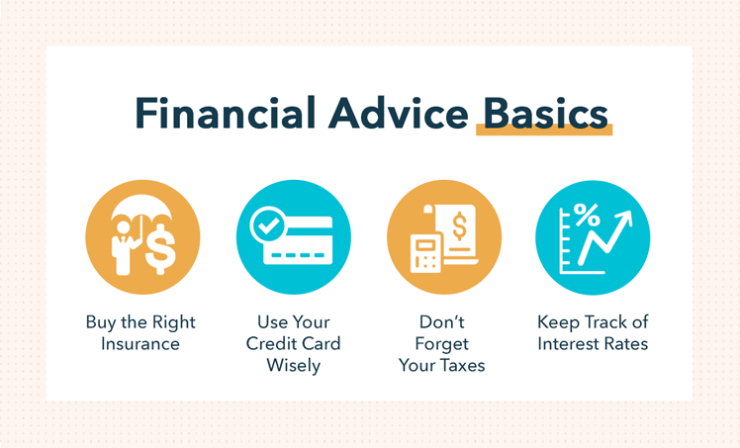Managing personal finances is an essential skill for working professionals. With the right strategies and habits, you can secure your financial future and achieve your long-term goals. In this blog, we will discuss 10 essential finance advice or you can call tips to help working professionals take control of their finances.
1. Create a Budget
The first step towards financial stability is creating a budget. Start by tracking your income and expenses to get a clear picture of your financial situation. Allocate funds for essential expenses such as housing, transportation, and groceries, and set aside a portion for savings and investments.
Creating a budget is an essential skill for managing personal finances effectively. By establishing a budget, individuals can gain better control over their spending, save money, and work towards achieving their financial goals. Whether you are single or married or in retirement life, having a budgeted life is best finance advice. Here are some key steps to follow when creating a budget:
- Assess Your Income: Start by determining your total monthly income. Include all sources, such as salary, freelance work, or investment returns. Knowing your income is crucial for planning your expenses.
- Track Your Expenses: Keep track of all your expenses for a month. Categorize them into fixed expenses (rent, utilities) and variable expenses (groceries, entertainment). This helps identify areas where you can cut back or make adjustments.
- Set Financial Goals: Determine your short-term and long-term financial goals. These could include saving for a vacation, paying off debt, or building an emergency fund. Having clear goals will motivate you to stick to your budget.
- Allocate Funds: Divide your income into different categories based on your priorities. Allocate amounts for necessities, savings, debt repayment, and discretionary spending. Be realistic and flexible, considering unexpected expenses that may arise.
- Reduce Expenses: Identify areas where you can cut back. Review your variable expenses and look for opportunities to save money. This could involve meal planning, negotiating bills, or finding cheaper alternatives for certain purchases.
- Monitor and Adjust: Regularly review your budget to track progress and make necessary adjustments. This allows you to stay on top of your finances and identify any areas where you may be overspending or under saving.
- Build an Emergency Fund: Prioritize saving for emergencies. Aim to have at least three to six months’ worth of living expenses in a separate savings account. This will provide a safety net in case of unexpected financial setbacks.
- Seek Professional Help if Needed: If you’re struggling with creating a budget or managing your finances, consider seeking advice from a financial planner or counselor. They can provide personalized guidance based on your specific situation.
Remember, creating a budget is just the first step. It requires discipline and commitment to stick to it. But by doing so, you’ll gain better control over your finances and pave the way for a more secure financial future.
2. Save for Emergencies
Unexpected expenses can arise at any time, so it’s crucial to have an emergency fund. Aim to save at least three to six months’ worth of living expenses in a separate savings account. This will provide a safety net during challenging times and help you avoid going into debt.
Saving for emergencies is a crucial aspect of personal finance advice. Life is unpredictable, and unexpected events can occur at any time, such as medical emergencies, car repairs, or sudden job loss. Having a dedicated emergency fund can provide a safety net during these challenging times.
When it comes to saving for emergencies, financial experts recommend setting aside three to six months’ worth of living expenses. This ensures that you have enough funds to cover essential needs like rent, utilities, food, and healthcare if an unexpected situation arises.
To start saving for emergencies, it’s essential to create a budget and analyze your expenses. Identify areas where you can cut back and redirect those funds towards your emergency fund. Automating your savings by setting up regular transfers from your paycheck to a separate savings account can help you stay consistent.
Additionally, it’s important to keep your emergency fund separate from your regular checking account to avoid the temptation of dipping into it for non-emergency expenses. Consider opening a high-yield savings account to earn some interest on your emergency fund while keeping it easily accessible.
3. Pay Off High-Interest Debt
If you have outstanding debts with high interest rates, prioritize paying them off as soon as possible. Start with the debts that have the highest interest rates, such as credit card balances or personal loans. By eliminating high-interest debt, you can save money on interest payments and improve your financial health.
Paying off high-interest debt is a crucial step towards achieving financial stability. By following some key finance advice, you can effectively tackle this burden and regain control over your finances. Paying the High Interest debt is the best finance advice you can hear.
- Create a budget: Start by analyzing your income and expenses to determine how much you can allocate towards debt repayment each month. Prioritize high-interest debt and allocate extra funds towards it.
- Cut unnecessary expenses: Identify areas where you can reduce spending, such as dining out or entertainment. Redirect the saved money towards paying off your high-interest debt.
- Increase your income: Consider taking on a part-time job or freelancing to supplement your income. The additional funds can be used to accelerate debt repayment.
- Consolidate or refinance: Explore options to consolidate multiple high-interest debts into a single loan with a lower interest rate. Refinancing can also help reduce interest payments and make your debt more manageable.
- Snowball or avalanche method: Choose a debt repayment strategy that suits you. With the snowball method, focus on paying off the smallest debt first, while with the avalanche method, target debts with the highest interest rate first.
- Seek professional advice: Consult with a financial advisor or credit counselor who can provide tailored guidance on managing your high-interest debt effectively.
4. Automate Your Savings
Make saving a hassle-free process by automating it. Set up automatic transfers from your paycheck to your savings account or investment portfolio. By doing this, you won’t be tempted to spend the money before saving it, and it will help you build a healthy savings habit over time.
Automating your savings is a smart and efficient way to manage your finances. Automating your savings is a very important finance advice. By setting up automatic transfers from your checking account to your savings account, you can ensure that a portion of your income is consistently saved without any effort on your part. This not only helps you build a financial safety net but also enables you to achieve your financial goals faster.
One of the key benefits of automating your savings is that it eliminates the temptation to spend the money that could have been saved. With the funds automatically transferred to your savings account, you are less likely to dip into them for unnecessary expenses. This promotes discipline in your spending habits and encourages you to prioritize saving for the future.
Another advantage of automating your savings is that it allows you to take advantage of compound interest. By consistently contributing to your savings, you can earn interest on both the principal amount and the accumulated interest. Over time, this compounding effect can significantly boost your savings and help you reach your financial goals sooner.
Automating your savings also reduces the risk of forgetting to save or falling behind on your savings goals. Life can get busy, and it’s easy to overlook saving when faced with other financial obligations. However, by automating the process, you ensure that saving becomes a priority and a regular habit.
5. Invest for the Future
While saving is important, investing is equally crucial for long-term financial growth. Consider investing in retirement accounts such as a 401(k) or an Individual Retirement Account (IRA). Additionally, explore other investment opportunities, such as stocks, bonds, or real estate, to diversify your portfolio and maximize your returns.
Investing for the future is a wise financial decision that can help individuals achieve their long-term goals and secure their financial well-being. Here are some key pieces of finance advice to consider when investing for the future:
- Set clear financial goals: Define your objectives, whether it’s saving for retirement, buying a house, or funding your child’s education. Having specific goals will help you create a focused investment plan.
- Diversify your portfolio: Allocate your investments across different asset classes, such as stocks, bonds, real estate, and commodities. Diversification helps reduce risk and maximize returns.
- Start early and be consistent: The power of compounding can significantly boost your investment returns over time. Start investing as early as possible and contribute regularly to take advantage of this growth potential.
- Understand your risk tolerance: Consider your risk appetite before making investment decisions. Assess your comfort level with volatility and potential losses to ensure your investments align with your risk profile.
- Stay informed and seek professional advice: Stay updated on market trends, economic indicators, and investment opportunities. Consult with a financial advisor who can provide personalized advice based on your circumstances.
- Stay disciplined and avoid emotional decisions: Stick to your investment strategy and avoid making impulsive decisions based on market fluctuations or short-term trends.
6. Live Within Your Means
It can be tempting to spend beyond your means, especially when you start earning a higher income. However, living within your means is vital for financial stability. Avoid unnecessary expenses and prioritize your needs over wants. By practicing frugality, you can save more money and make progress towards your financial goals.
Living within your means is a crucial aspect of financial stability and success. One of the best finance advice to make for your better living. Making wise financial decisions and adhering to a budget is essential for managing your personal finances effectively. By living within your means, you ensure that your expenses do not exceed your income, allowing you to avoid debt and financial stress.
One key piece of finance advice is to track your expenses carefully and create a realistic budget. This will help you prioritize your spending and identify areas where you can cut back. Avoid unnecessary purchases and focus on essential needs. Additionally, it is important to save and invest wisely. Set aside a portion of your income for emergency funds and long-term goals, such as retirement.
Living within your means requires discipline and self-control, but the benefits are numerous. It allows you to have peace of mind, avoid financial strain, and work towards your financial goals. By practicing prudent financial habits, you can achieve financial security and build a solid foundation for a prosperous future.
7. Plan for Retirement
Retirement may seem far away, but it’s important to start planning for it early on. Determine how much money you’ll need to maintain your desired lifestyle during retirement and develop a plan to achieve that goal. Take advantage of employer-sponsored retirement plans and contribute the maximum amount allowed.
Planning for retirement is an essential aspect of personal finance advice. It involves setting financial goals and implementing strategies to achieve them. The first step is to determine the desired lifestyle during retirement and estimate the expenses associated with it. This includes considering factors such as healthcare costs, inflation, and potential long-term care needs.
To build a solid retirement plan, it is important to start saving early and regularly contribute to retirement accounts such as 401(k)s or IRAs. Taking advantage of employer matching contributions and tax benefits can significantly boost retirement savings.
Diversifying investments is another crucial element of retirement planning. Allocating assets across different investment vehicles, such as stocks, bonds, and real estate, helps manage risk and maximize returns.
Regularly reassessing the retirement plan is necessary to account for changing circumstances and adjust the savings and investment strategies accordingly. Seeking professional financial advice can provide valuable guidance in creating a personalized retirement plan that aligns with individual goals and risk tolerance.
8. Insure Yourself
Protect yourself and your loved ones by having adequate insurance coverage. This includes insurance types such as health, life, disability, and home or renter’s insurance. Having the right insurance policies in place will provide financial security in case of unexpected events or emergencies. One of the best finance advice is to Insure Yourself.
Insuring yourself is a crucial aspect of personal finance advice. It provides a safety net against unexpected events and helps protect your financial well-being. By obtaining insurance coverage, you can mitigate the potential financial risks associated with various aspects of your life.
Firstly, health insurance ensures that you have access to quality medical care without incurring exorbitant expenses. It safeguards against medical emergencies, hospital stays, and costly treatments.
Secondly, auto insurance protects you from the financial burden of car accidents and damages. It covers repairs, medical bills, and liability costs, ensuring that you are not left with a hefty bill in the event of an accident.
Additionally, life insurance provides financial support to your loved ones in the unfortunate event of your passing. It can help cover funeral costs, outstanding debts, and provide a source of income for your dependents.
Lastly, property insurance safeguards your home and belongings against unexpected events like fires, theft, or natural disasters. It ensures that you can rebuild or replace damaged property without crippling financial strain. For renters, this protection is equally crucial. Explore our comprehensive review of Toggle Renters Insurance to discover tailored coverage options that offer peace of mind against these very risks, ensuring your rental home remains a safe haven.
9. Increase Your Financial Knowledge
Financial literacy is key to making informed decisions about your money. Take the time to educate yourself about personal finance topics such as budgeting, investing, and tax planning. Read books, take courses, or consult with a financial advisor to enhance your financial knowledge and make better financial choices.
10. Review and Adjust Regularly
Lastly, regularly review your financial plan and make adjustments as needed. Life circumstances change, and so do financial goals. Periodically assess your budget, investments, and overall financial strategy to ensure they align with your current situation and aspirations.
You may be wondering, how this will help professionals?. Hiring Managers might ask you how you manage your personal finances. This is one of the essential skills for success. Problem solving is one piece of the puzzle. How we respond once you become success also matters.
Final Thoughts
In conclusion, by implementing these 10 essential financial tips, working professionals can gain control over their finances and build a solid foundation for a secure future. Remember to create a budget, save for emergencies, pay off high-interest debt, automate savings, invest wisely, live within your means, plan for retirement, insure yourself, increase your financial knowledge, and regularly review and adjust your financial plan.






